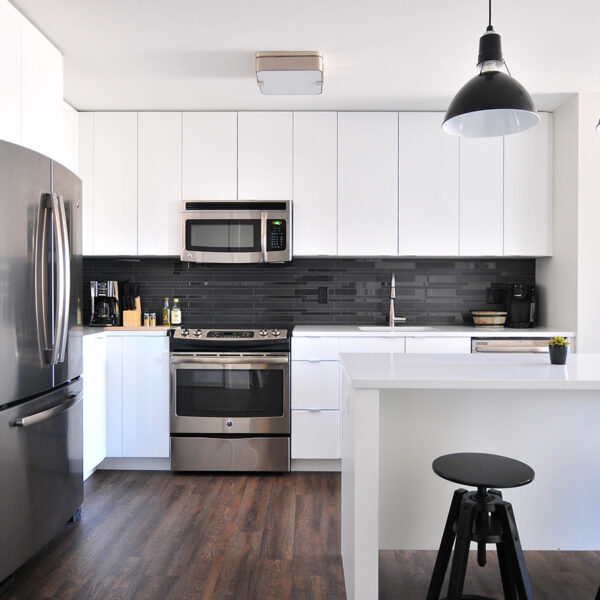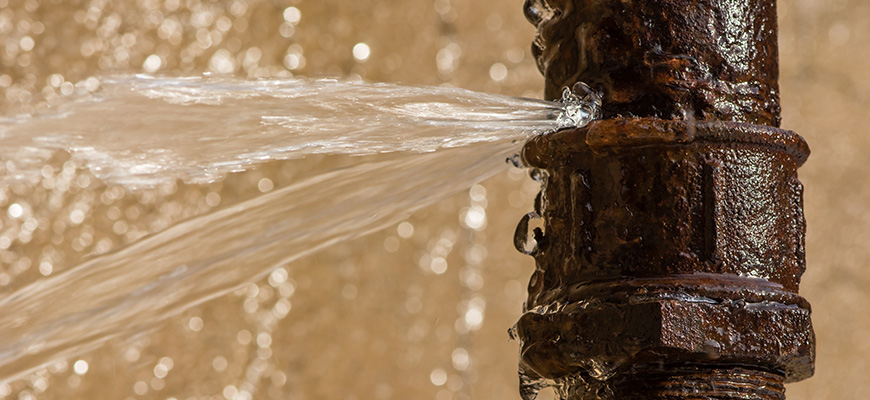Are you thinking about skipping a home inspection to save a few bucks? Think again! When it comes to plumbing, skipping a home inspection could be a costly mistake that you’ll regret. Plumbing perils can lurk behind the walls, under the floors, or in the pipes, waiting to cause havoc in your dream home.
A home inspection is crucial to identify potential plumbing problems before they escalate into expensive disasters. Leaky pipes, clogged drains, faulty sump pumps, or outdated plumbing systems could be lurking beneath the surface, and a qualified home inspector will spot these issues.
Imagine moving into your new home only to find out that the plumbing system needs a complete overhaul. The cost of repairs can quickly add up, putting a dent in your wallet. By skipping a home inspection, you are taking the risk of inheriting someone else’s plumbing nightmares.
Importance of home inspections for plumbing
A home inspection is not just a formality; it is an essential step in the home buying process. When it comes to plumbing, a thorough inspection can save you from costly repairs down the line. During a home inspection, a qualified professional will assess the condition of the plumbing system, identify any existing issues, and provide recommendations for repairs or maintenance.
One of the main reasons why a plumbing home inspection is crucial is because plumbing problems can be hidden from plain sight. Behind the walls or under the floors, leaks, pipe corrosion, or faulty connections can go unnoticed until they cause significant damage. A home inspector has the expertise to detect these hidden issues and prevent them from escalating into costly disasters.
Additionally, a plumbing home inspection can provide valuable information about the overall condition of the plumbing system. It can reveal if the pipes are outdated and prone to issues, if there are any potential drainage problems, or if the water pressure is adequate. This information can help you make an informed decision about the purchase of the property and negotiate any necessary repairs or upgrades with the seller.
Common plumbing issues found during home inspections
During a home inspection, several common plumbing issues can be identified. These issues, if left untreated, can lead to significant damage and costly repairs. Here are some of the most common plumbing problems that are often discovered during home inspections:
- Leaky pipes: Leaks can occur in various parts of the plumbing system, including pipes, fixtures, or connections. A home inspector will look for signs of water damage, such as stains, mold, or dampness, which can indicate the presence of leaks. Addressing leaks promptly is crucial to prevent water damage and mold growth.
- Clogged drains: A clogged drain may seem like a minor inconvenience, but it can be a symptom of a larger plumbing problem. During a home inspection, the inspector will check the drains for any blockages and assess the overall condition of the drainage system. Identifying and clearing clogs early can prevent backups and water damage.
- Faulty sump pumps: If the property has a basement or is located in an area prone to flooding, a sump pump is essential for preventing water damage. A home inspector will assess the functionality of the sump pump and check if it is properly installed and maintained. Ensuring that the sump pump is in good working condition is crucial for protecting your home from water damage.
- Outdated plumbing systems: Older homes may have outdated plumbing systems that are more prone to issues. During a home inspection, the inspector will evaluate the age and condition of the plumbing system, including the pipes, fittings, and fixtures. Identifying outdated plumbing systems can help you plan for necessary repairs or upgrades.
Costly consequences of plumbing problems
The consequences of ignoring plumbing problems can be severe, both in terms of your health and your wallet. Plumbing issues can lead to water damage, mold growth, structural damage, and even health hazards. Here are some costly consequences that can arise from untreated plumbing problems:
- Water damage: Leaky pipes, burst pipes, or faulty plumbing fixtures can cause water damage to your home. Water damage can lead to structural issues, mold growth, and damage to your personal belongings. Repairing water damage can be a costly and time-consuming process, especially if it has affected multiple areas of your home.
- Mold growth: Excess moisture from plumbing leaks can create the perfect environment for mold growth. Mold not only damages the structure of your home but also poses health risks, especially for individuals with respiratory conditions or allergies. Mold remediation can be an expensive process that requires professional intervention.
- Structural damage: If left untreated, plumbing problems can compromise the structural integrity of your home. Water can seep into the walls, floors, or foundation, causing rot, weakening the structure, and potentially leading to costly repairs.
- Health hazards: Plumbing issues can create health hazards, especially if they result in contaminated water. Leaks or faulty pipes can introduce harmful bacteria or chemicals into your water supply, posing a risk to your health and the health of your family. Treating waterborne illnesses can be expensive and time-consuming.
Benefits of hiring a professional plumber for inspections
While a general home inspector can identify plumbing issues to some extent, hiring a professional plumber for a specialized plumbing inspection offers several benefits. A professional plumber has the expertise and knowledge to thoroughly assess the plumbing system and provide accurate recommendations. Here are some benefits of hiring a professional plumber for your home inspection:
- In-depth knowledge: Professional plumbers have extensive knowledge and experience in all aspects of plumbing. They are well-versed in the latest plumbing codes and regulations, ensuring that your home’s plumbing system meets safety standards. Their expertise allows them to identify potential issues that a general home inspector may overlook.
- Specialized tools and equipment: Professional plumbers have access to specialized tools and equipment that can help them detect hidden plumbing problems. They may use cameras to inspect the inside of pipes or moisture meters to identify areas of water damage. These tools can provide a more accurate assessment of the plumbing system.
- Detailed inspection reports: A professional plumber will provide you with a detailed inspection report that outlines all the findings and recommendations. This report can be used as a reference when negotiating repairs or upgrades with the seller. The detailed information provided by a professional plumber can help you make informed decisions about the property.
- Preventive maintenance advice: Along with identifying existing issues, a professional plumber can provide preventive maintenance advice to help you maintain your plumbing system in the best possible condition. They can offer tips on how to prevent future problems and extend the lifespan of your plumbing system.
Steps involved in a plumbing home inspection
A plumbing home inspection involves a comprehensive assessment of the entire plumbing system, from the water supply to the drainage. Here are the steps typically involved in a plumbing home inspection:
- Water supply inspection: The inspector will assess the water supply system, including the pipes, valves, and water heater. They will check for leaks, proper water pressure, and ensure that the water heater is in good working condition.
- Drainage inspection: The inspector will inspect all drains, including sinks, showers, bathtubs, and toilets, to check for any blockages or signs of damage. They will also assess the condition of the sewer line and look for any potential issues that may lead to backups or clogs.
- Fixture inspection: The inspector will examine all plumbing fixtures, such as faucets, toilets, and showers, to ensure they are in good working condition. They will check for leaks, proper water flow, and assess the overall condition of the fixtures.
- Sump pump inspection: If the property has a sump pump, the inspector will inspect its functionality and ensure that it is properly installed and maintained. They will check if the sump pump is capable of handling potential water intrusion.
- Pipe inspection: The inspector may use specialized tools, such as cameras, to inspect the inside of the pipes and identify any hidden issues, such as corrosion, leaks, or blockages. This step is crucial for detecting problems that are not visible to the naked eye.
Signs that indicate the need for a plumbing inspection
While a plumbing home inspection is essential when buying a new home, there are certain signs that indicate the need for an inspection even in your existing home. If you notice any of the following signs, it is advisable to schedule a plumbing inspection:
- Frequent leaks: If you are experiencing frequent leaks or water damage in your home, it may indicate underlying plumbing issues. A plumbing inspection can help identify the source of the leaks and prevent further damage.
- Low water pressure: If you are experiencing consistently low water pressure throughout your home, it may be a sign of a plumbing problem. A plumbing inspection can help identify the cause of the low water pressure and provide recommendations for repairs.
- Slow drains: If your drains are slow to empty or frequently clogged, it may indicate a blockage or other plumbing issues. A plumbing inspection can help identify the cause of the slow drains and prevent backups.
- Unusual odors: If you notice foul odors coming from your drains or water, it may indicate a problem in the plumbing system. A plumbing inspection can help identify the source of the odors and address the underlying issue.
Conclusion: The value of investing in a plumbing home inspection
In conclusion, skipping a home inspection when it comes to plumbing can be a costly mistake. Plumbing perils can hide behind the walls, under the floors, or in the pipes, waiting to cause havoc in your dream home. A home inspection is crucial to identify potential plumbing problems before they escalate into expensive disasters. Leaky pipes, clogged drains, faulty sump pumps, or outdated plumbing systems can be lurking beneath the surface, and a qualified home inspector will spot these issues.
Investing in a plumbing home inspection offers numerous benefits. It can save you from costly repairs, prevent water damage and mold growth, and ensure the overall safety and functionality of your plumbing system. By hiring a professional plumber for your home inspection, you gain access to their expertise, specialized tools, and detailed inspection reports, which can help you make informed decisions about the property.
Don’t let plumbing perils turn your dream home into a costly nightmare. Schedule a home inspection today and ensure your peace of mind. Because when it comes to plumbing, an ounce of prevention is worth a fortune in repairs.


